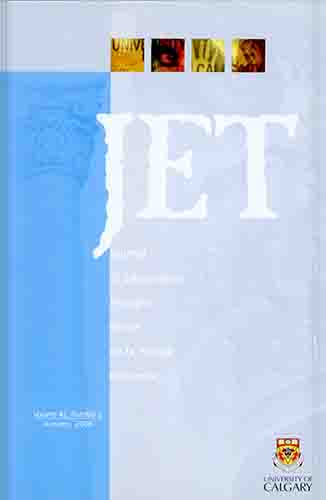Critical Thinking in Science Education: Can Bioethical Issues and Questioning Strategies Increase Scientific Understandings?
DOI:
https://doi.org/10.55016/ojs/jet.v42i2.52463Abstract
Many North American school districts and post-secondary academic institutions are acknowledging the importance of becoming a critical thinker. Future citizens will need to be to informed consumers of technology, science, sociology, and ethics, to name a few. After all, the world has become vastly more complicated, necessitating such skills as reasonableness and logical thinking. By engaging students at a crucial time in their developmental process, we can lay the foundation for good critical thinkers. The purpose of this paper is to examine the importance of critical thinking in science education, both at the secondary and post-secondary levels. Evidence regarding its suitability will be drawn from critical thinking and science education literature, as well as previous studies using bioethical decision-making and generic question stem strategies with middle school and university students.Downloads
Published
2018-05-17
Issue
Section
Articles
License
The Journal of Educational Thought retains first publication rights for all articles. The Journal grants reproduction rights for noncommercial educational purposes with the provision that full acknowledgement of the work’s source be noted on each copy. The Journal will redirect to the appropriate authors any inquiries for further commercial publication of individual articles. All authors wishing to publish in JET will be asked to fill in and sign a Consent to Publish and Transfer of Copyright agreement.
Authors must affirm that any submission to JET has not been and will not be published or submitted elsewhere while under considration by JET.

